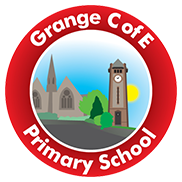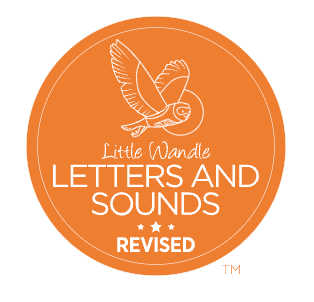Mathematics
Maths at Grange CE Primary School
Intent
At Grange School we aim to provide children with a foundation for understanding number, reasoning, thinking logically and problem solving with resilience so that they are fully prepared for the future. It is essential that these keystones of Mathematics are embedded throughout all strands of the National Curriculum. By adopting a Mastery approach, it is also intended that all children, regardless of their starting point, will maximise their academic achievement and have an appreciation and enthusiasm for Maths, resulting in a lifelong positive relationship with number.
We believe that the study of Maths should enable pupils to:
- Make rich connections across mathematical ideas in order to develop fluency, mathematical reasoning and competence in solving increasingly sophisticated problems.
- Believe in themselves as confident, independent mathematicians who will develop resilience and perseverance when faced with mathematical challenges.
- Access a high-quality maths curriculum that is both challenging and enjoyable.
- Develop conceptual understanding and be able to recall and apply knowledge rapidly and accurately.
- Apply their mathematical knowledge to science and other subjects.
- Be confident mathematicians who are not afraid to take risks and who see Maths as essential to everyday life. It is important in terms of aspirations and striving to achieve our potential.
- Fully develop as independent learners with inquisitive minds, who have secure mathematical foundations and an interest in self-improvement.
- Develop a real love of Maths.
Implementation
At Grange School, we aim to provide a secure understanding of the curriculum and subject area through Teaching and Learning, Content and Sequence.
- For Maths, our long-term planning follows the National Curriculum 2014. All teachers follow daily lessons from Reception through to Year 6 using schemes of learning published by White Rose Maths to plan effectively, producing lessons incorporating fluency, reasoning and problem solving. The White Rose schemes are complimented with additional resources which reinforce reasoning and problem solving. For example, Classroom Secrets, NRICH and NCETM are used as and when teachers feel that it is appropriate for their cohort.
- Short term planning is supported by the use of the White Rose Maths materials and our school calculation policy to ensure a consistent approach to teaching the four operations.
- By using a variety of planning resources, we believe that we provide a bespoke teaching and learning experience that is designed to interest, inform and inspire our children. Pupils who grasp concepts rapidly will be challenged through being offered rich and sophisticated problems before acceleration through new content.
- Pupils who are not sufficiently fluent with earlier material will consolidate their understanding before moving on.
- Using prior knowledge as a starting point for all future planning and teaching, we plan and adapt lessons in order for all pupils to make good progress.
- Lessons are creative and engaging, enabling them to explore mathematics to develop mastery of the subject. We follow a structured cycle of planning, to ensure that we can evidence progress over short and long periods of time.
- Maths lessons are designed with a concrete, pictorial and abstract (CPA) approach, providing our pupils with the scaffolding required to access the learning at all levels.
Concrete- children have the opportunity to use concrete objects and manipulatives to help them understand and explain what they are doing.
Pictorial-children then build on this concrete approach by using pictorial representations, which can then be used to reason and solve problems.
Abstract – with the foundations firmly laid, children can move to an abstract approach using number and key concepts with confidence.
- We place a large emphasis on pupil engagement and design lessons which involve all pupils and the use of questioning and modelling is central to every lesson.
- To implement our intent, we ensure that our children are invested in their learning and are making a positive contribution to their lessons.
Leadership, Assessment and Feedback - Assessment informs the teaching and learning sequence, and children work on the objectives they are assessed as being at.
- ‘In the moment’ feedback is given on children’s learning where possible otherwise written feedback is given outlined in the Feedback and Marking Policy.
- Formative assessment within every lesson helps teachers to identify the children who need more support to achieve the intended outcome and who are ready for greater stretch and challenge through planned questioning or additional activities.
- Children who not making the required progress are given extra support through booster sessions and support in class in order to meet our INTENT of developing pupils academically.
- In order to support teacher judgments, children are assessed every half term. KS1 & KS2 teachers use current and reliable tests in line with the National Curriculum for Maths. Teachers make an assessment of pupils progress and add this information to Scholarpack (our whole school tracking system). In Early Years we take observations from Tapestry. Assessment is also made against Development Matters on a termly basis.
- Analysis of any tests that the children complete is undertaken and fed into future planning. Summative assessments are completed at the end of the academic year and help influence the overall judgement reported to parents in the end of year report. End of year assessments involve EYFS profile, Year 1-6 White Rose end of term assessments and SATS.
- The Maths Leader has a clear role and overall responsibility for the progress of all children in Maths throughout school. Working with SLT, key data is analysed and regular feedback is provided and discussed at pupil progress meetings to inform on progress and future actions.
- Moderation and key data sharing is analysed in staff meetings to inform progress and future actions.
Impact
A mathematical concept or skill has been mastered when a child can show it in multiple ways, using the mathematical language to explain their ideas, and can independently apply the concept to new problems in unfamiliar situations.
- Children demonstrate quick recall of facts and procedures. This includes the recollection of the times tables.
- The flexibility and fluidity to move between different contexts and representations of mathematics.
- The ability to recognise relationships and make connections in mathematics.
- Children show confidence in believing that they will achieve.
- Children show a high level of pride in the presentation and understanding of the work.
- Children are reasoning with increased confidence and accuracy.
- Statistical impact – school tracker, Development Matters, EYFS profile, Tapestry, White Rose Maths Assessments, SATs results, comparisons with county and national levels.









